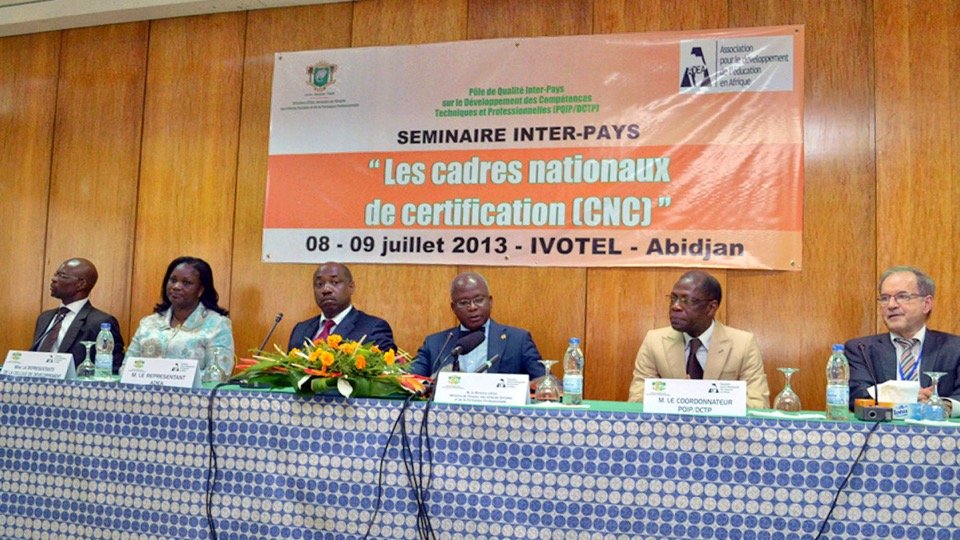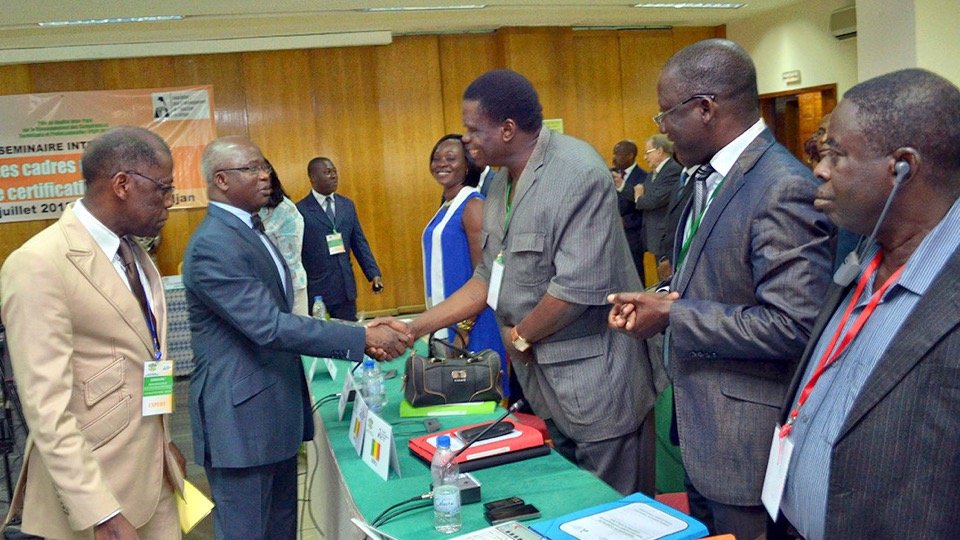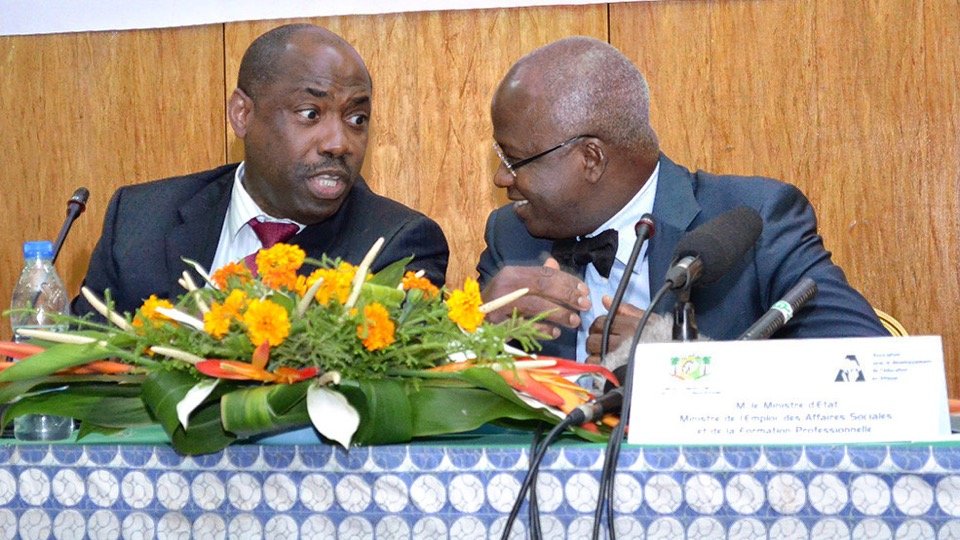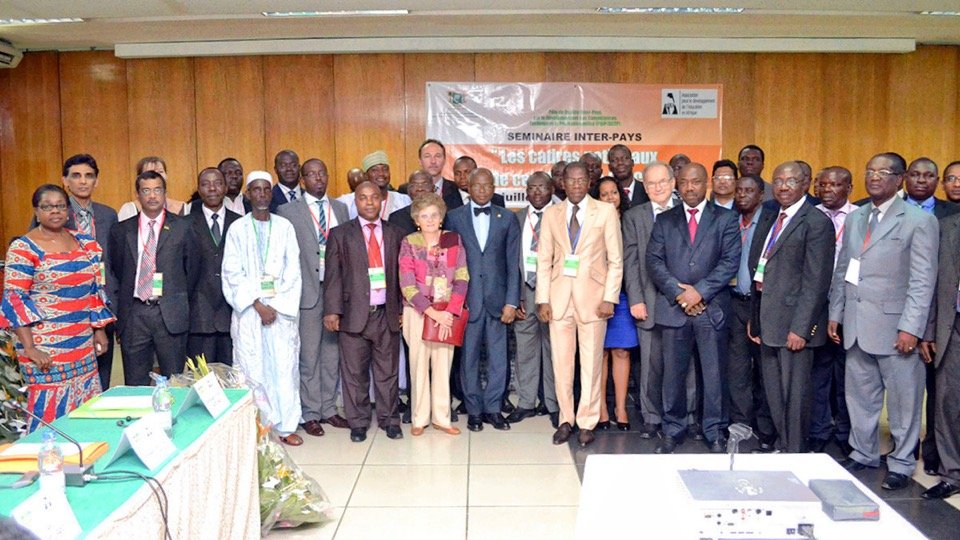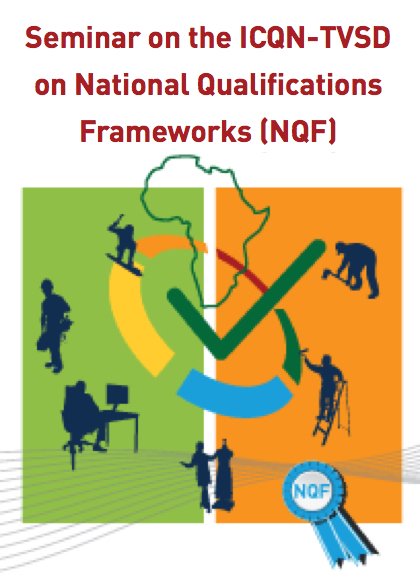Seminar of the ICQN-TVSD on National Qualifications Frameworks
Introduction
At the second meeting of the Inter-Country Quality Node on Technical and Vocational Skills Development (ICQN/TVSD), which was held in Abidjan from 19 to 21 September 2011, the ministers and representatives of the 20 countries present decided to create three thematic groups: one on the transition to work, one on national qualification frameworks and one on the role of trade/business associations in the field of TVSD. This concept paper focuses on the setting up of the thematic group on national qualification frameworks (NQFs) and preparation of a seminar on this topic to be held in late spring 2013. The seminar follows the one on youth integration that took place on 3 and 4 December 2013 in Abidjan. It aims to pursue the debate on the design and creation of NQFs in Africa, drawing on the experiences of countries that have made significant progress in this area, in particular regarding the recognition and accreditation of skills acquired outside formal training and qualification systems.
Background and rationale
The issue of national qualification frameworks has become particularly important since the decision to replace the concept of TVET with that of TVSD was approved at the ADEA Triennale. This paradigm shift is based on the fact that NQFs should no longer be reserved for qualifications in the formal system, as is currently the case in most countries in the region, but should also take into account all the various different ways, means and methods of acquiring technical and vocational skills. In other words, NQFs should cover skills acquired through both formal and non-formal/informal training and qualification channels.
Several countries have made attempts and taken initiatives to recognize the various forms of skills. Examples include the Vocational Qualification Certificate (CQP) and Vocational Trades Certificate (CQM) in Benin, the Basic Qualification Certificate (CQB), Vocational Qualification Certificate (CQP), Vocational Qualification Diploma (BQP) and Technician Qualification Diploma (BPT) in Burkina Faso and the Apprenticeship Completion Certificate (CFA) in Mali. However, these forms of recognition are still struggling to be included in NQFs, which are based solely on qualifications issued by the formal system.
Two countries, South Africa and Mauritius, have developed NQFs that provide recognition for all the ways in which skills are developed. South Africa’s National Accreditation System was developed in the 1990s and took over 15 years to achieve a system that recognizes 10 certification levels. Business organizations and professionals participate in the certification process. Mauritius’s NQF was established in 2001. It also has 10 levels of certification and recognizes and validates skills acquired outside formal education and training using the Recognition of Prior Learning (RPL) process. The design and creation of NQFs that aim to take into account the whole field of TVSD are also identified as key training policy objectives in countries such as Ghana, Mozambique, Ethiopia, Kenya, Tanzania, Tunisia, Nigeria and Senegal...
For more information, please refer to the concept note.

